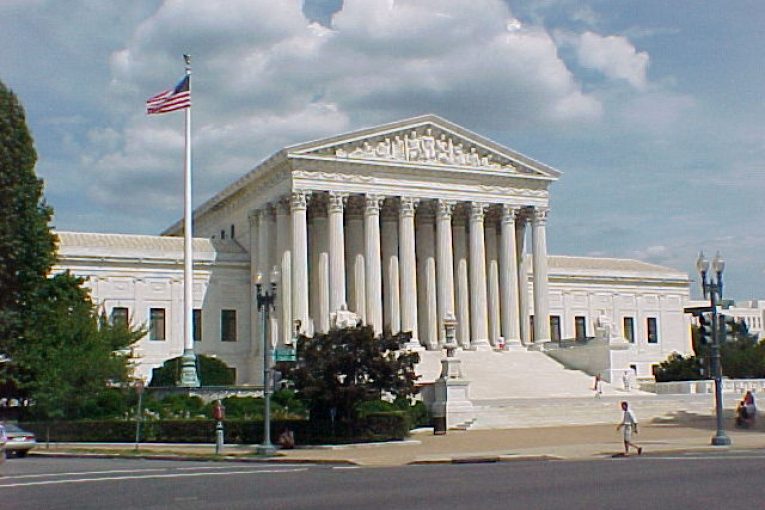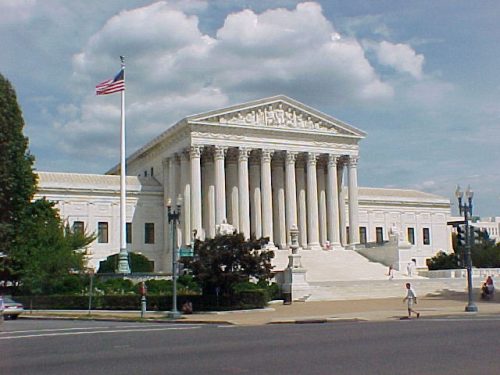

Via Flickr

This work is licensed under a Creative Commons Attribution 2.0 Generic License.
By Crescenzo Vellucci
The Vanguard Sacramento Bureau
WASHINGTON, DC – Legal commentators are drawing attention to a little-seen decision by the U.S. Supreme Court at the end of July amid a seeming flurry of rulings, as noted by the PBS NewsHour story that alleges the decision dealt with “what seemed to be a rather technical question of law around federal habeas petitions, a fundamental right that protects against unlawful and indefinite imprisonment.”
Commentator John Yang at PBS NewsHour asserts the “decision has big consequences for federal prisoners trying to challenge their convictions.”
And a Vox News story said SCOTUS “just ruled that at least some federal prisoners who are completely innocent must serve out their entire sentence, with no meaningful way to challenge their unlawful conviction.”
Vox insisted, “One of the most fundamental principles of criminal law is that no one may be convicted of a crime unless the legislature previously passed a law making their actions illegal. If there is no law on the books that, say, marijuana possession is unlawful, then a judge cannot toss someone in jail because they were found with a joint.”
But the Supreme Court’s 6-3 decision—along ideological grounds—in Jones v. Hendrix, handed down in late June “does not directly attack this foundational principle. Instead, it does so indirectly by prohibiting many prisoners from ever challenging their convictions in court,” added VOX.
As PBS’ Yang said, the case involved a man convicted in 2000 of having guns, despite being a felon, a violation of federal law. He was sentenced to more than 27 years in prison.
“But, nearly two decades later, the Supreme Court changed the interpretation of the law used to convict him. Under the new interpretation, he would be innocent. And so, on those grounds, he went to court to have his conviction thrown out,” because he had already challenged his conviction before, noted Yang.
Daniel Medwed, professor at Northeastern University School of Law and the author of Barred: Why the Innocent Can’t Get Out of Prison, told Yang “as Justice Jackson said in her dissent, in a sense, this slams the door on people trying to raise claims of legal innocence, that the evidence can prove their guilt beyond a reasonable doubt, after they have already filed one of their federal habeas petitions.
“This relates to federal habeas corpus, which is one of the greatest, potentially greatest post-conviction remedies we have in our country. But the Supreme Court has gradually whittled away at it as a tool for justice,” said Medwed.
The prof added, “We got here over a series of twists and turns that were charted both by the Supreme Court and by Congress,” noting a 1993 SCOTUS case said a claim of “of actual innocence by itself won’t be recognized in one of these federal habeas corpus petitions. And then, in 1996, Congress changed the law governing these federal habeas corpus procedures to make it very, very difficult to get into court.”
Medwed added, “There are strict statutes of limitations, restrictions on when you can file second or successive habeas petitions and other onerous procedural barriers. So, I think this case, Jones v. Hendrix, is part of a multidecade train—trend toward narrowing the federal habeas corpus remedy,” blaming Congress even more than SCOTUS.
Yang noted Justice Clarence Thomas chose “finality over error correction,” meaning, as Medwed explained, “finality is often highlighted as a variable or as a factor in favor of curtailing post-conviction remedies. The idea is that, at some point, litigation should be final, or else victims won’t have closure, and the litigation system won’t have the capacity to absorb new cases.
“But, on the other hand, I think that finality is often a fallacy. What good is finality if, in fact, there is an underlying question of legal or factual innocence? That is a problem. I think accuracy is more important than finality. And, sometimes, that means we should take a closer look, maybe a second look, at a meritorious claim.
Yang said, “I think we all have the image for movies or television that someone rushes into the courtroom and says, ‘This man is innocent,’ and he is released. But why is it so hard to correct a wrongful conviction?”
Medwed explained that “there’s a misimpression that biological evidence, scientific evidence, is available in all these cases, and if you can just find it and test it after your conviction, voila, the prison gates will open. That’s not true.
“Biological evidence suitable, for instance, for DNA testing is estimated to be available in only 10 to 20 percent of criminal cases to begin with, and that assumes that it’s retrieved at the crime scene and adequately stored.”
Medwed also noted that “even without scientific evidence, it’s incredibly hard to reverse a conviction, because, after a conviction, the presumption of innocence disappears, a presumption of guilt takes hold, and all of the procedures are stacked in favor of reinforcing and supporting that finding of guilt. It is so hard not only to find new evidence, but, once you found it, you have to overcome an array of procedural obstacles just to get into court.”
The Vox story bluntly added, “As Republican presidents filled more seats on the Supreme Court, however, the finality über alles approach favored by Scalia and Thomas was embraced by a majority of the justices.”
Vox cited Shinn v. Ramirez (2022), “a case involving an innocent man who was later freed after spending 29 years on death row for a crime he did not commit (but) Thomas “complained in the Court’s majority opinion that a federal habeas court’s decision to free a state prisoner ‘overrides the State’s sovereign power to enforce ‘societal norms through criminal law,’ and ‘disturbs the State’s significant interest in repose for concluded litigation.’”
Vox determines, “Thomas does not simply repeat his philosophical commitment to finality in criminal convictions, he attributes that commitment to Congress — claiming that…Congress has chosen finality over error correction.”




